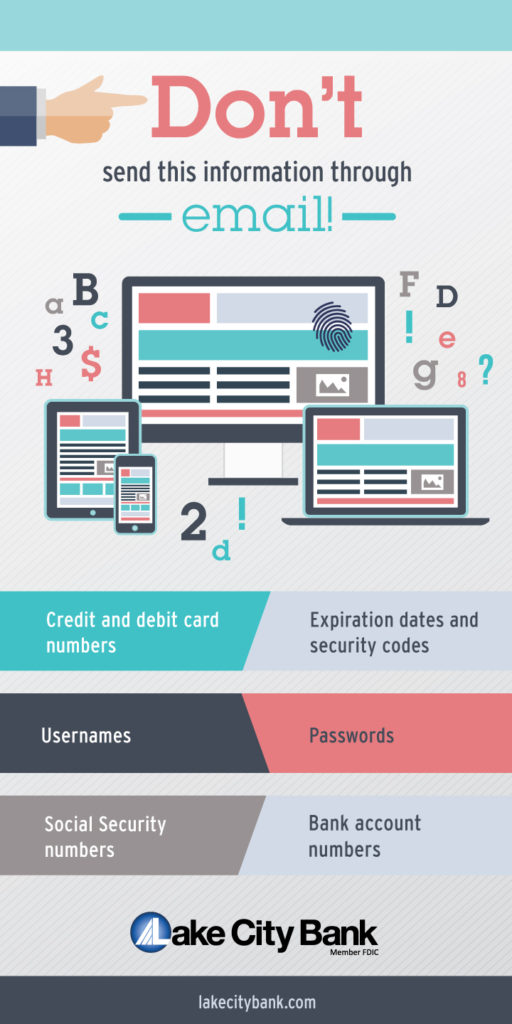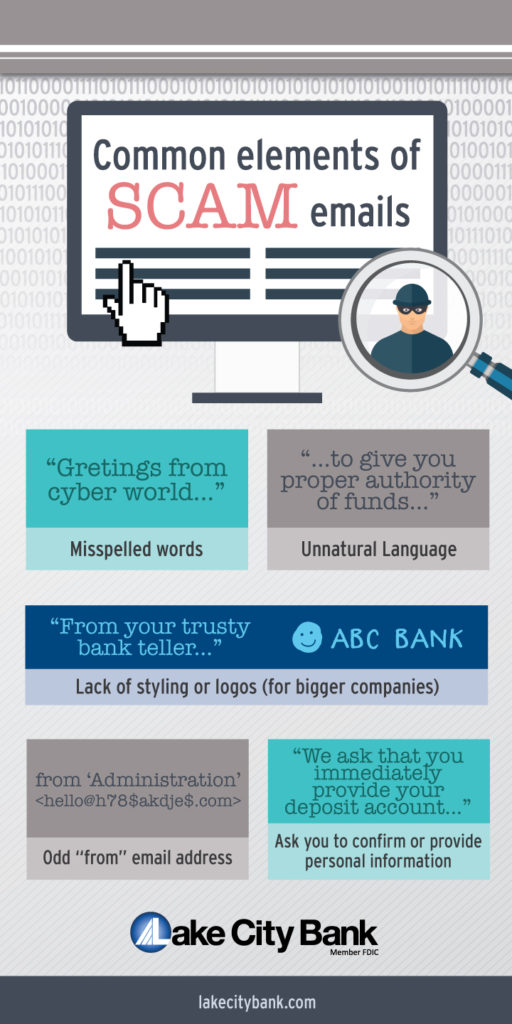

Email can also pose a threat to your online security. Hackers can intercept and look at any information you send through email, and they often use scam emails to trick people into giving them personal information. We’re going to teach you how to protect your information and identify scam emails by acting before the hack.
Information You Should Never Send Via Email
To act before the hack, there are some pieces of information you should never send and no one should ever ask you to send through email. For the full-size infographic, click the image below.

Spam – Not in a Can!
You may like Spam in a can, but most of us want to avoid spam in our email box. Thankfully, the Cybersecurity and Infrastructure Security Agency lists tips for avoiding spam emails. Go here for all the details: https://us-cert.cisa.gov/ncas/tips/ST04-007.
Popular Email Scams
When you get a strange email that could be a scam, why not check it against this list of popular scams? Act before the hack by going to this website to see if it or emails similar to it are listed: https://www.fbi.gov/scams-and-safety/common-fraud-schemes.
Common Elements of Scam Emails
Email scams are everywhere—in fact, listing them all would be impossible. If you receive a suspicious email, even if it’s not on the popular scam list, act before the hack by looking for some common elements of scam emails. For the full-size infographic, click the image below.

Think an Email Might Be a Scam?
Do you smell a scam? Act before the hack by taking these steps to protect yourself from it.
- Delete it
- Don’t reply, and don’t click on links or call phone numbers provided in the message
- Review your credit card and bank account activity regularly for unauthorized charges
- Open attachments or download files from emails with caution, no matter who sent them
For more information about handling scam emails, visit this website: http://www.consumer.ftc.gov/articles/0003-phishing.
If You Fall for an Email Scam
Email scammers keep improving their scamming techniques, so even if you are careful, you could still fall for an email scam. React to the hack by taking the steps listed on this website if you think someone has stolen your personal information: http://www.in.gov/attorneygeneral/2873.htm.



